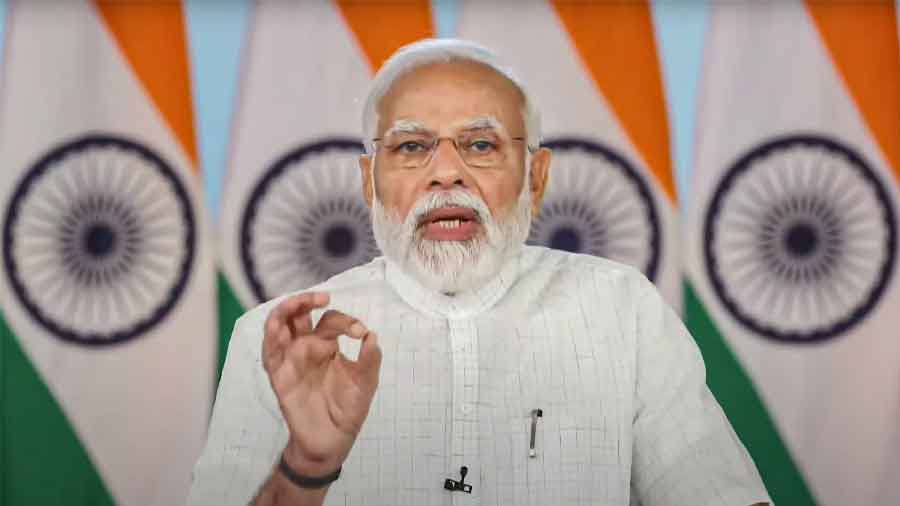One of the prime minister’s mercurial skills is his ability to pass the buck instead of taking the blame for a crisis. This has come to light, once again, with Narendra Modi pointing a finger, couched in the rhetoric of ‘prayer’, to states ruled by Opposition parties, alleging their complicity in the shocking rise in oil prices. At an online meeting called to discuss the Covid-19 situation, Mr Modi unexpectedly requested the Opposition to cut the value-added tax on fuel in the states where it was in power, adding that his government had cut excise duties on petrol and fuel in November last year. The Opposition — the Bengal chief minister has led the charge — has alleged that it has evidence of the prime minister’s doublespeak. Mamata Banerjee stated that Mr Modi’s prarthana is misleading because the Central tax on petrol is much higher than that of the states. Mr Modi’s government, she alleged, has not only fattened its purses but also not cleared the dues it owes to states. Bengal, Ms Banerjee said, is yet to receive a princely sum from Mr Modi’s parsimonious regime under various headers. The concerted pushback by Opposition chief ministers — even Telangana’s K Chandrasekhar Rao, a fence-sitter, has raised his voice — shows that there is merit in examining the truth behind Mr Modi’s allegation.
What is doubly ironic is Mr Modi’s invocation of the principle of ‘cooperative federalism’ in the matter. The current regime has been repeatedly accused of dismantling India’s federal edifice. The evidence is substantial. From the alleged unleashing of Central investigative agencies on political opponents, often to queer the electoral pitch that has a formidable presence of the Opposition, to taking unilateral decisions adversely affecting states — Kashmir was stripped of statehood by keeping its assembly in the dark — Mr Modi’s regime perhaps has the worst record in upholding cooperative federalism. In fact, the rise in prices of essential commodities is an opportunity for the Opposition to remind Mr Modi and the Bharatiya Janata Party of their commitment to what constitutes ‘national interest’. Alleviating the pain of the people is the best way to serve the nation. But what Mr Modi has succeeded in is confining national welfare within a narrow framework of religious triumphalism. An impotent Opposition has allowed this government to get away with it. Mr Modi’s dubious rhetoric on oil prices offers another chance for the Opposition to sift the grains of truth from the chaff.










